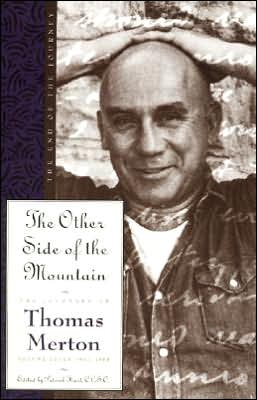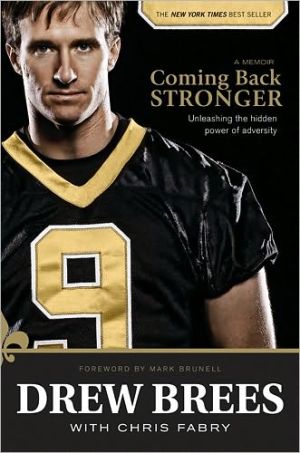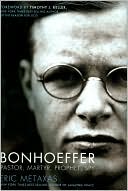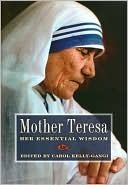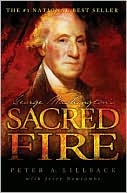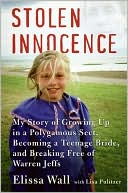Other Side of the Mountain: The End of the Journey, Vol. 7
With the election of a new Abbot at the Abbey of Gethsemani, Merton enters a period of unprecedented freedom, culminating in the opportunity to travel to California, Alaska, and finally the Far East – journeys that offer him new possibilities and causes for contemplation. In his last days at the Abbey of Gethsemani, Merton continues to follow the tumultuous events of the sixties, including the assassinations of Martin Luther King, Jr., and Robert Kennedy. In Southeast Asia, he meets the Dalai...
Search in google:
With the election of a new Abbot at the Abbey of Gethsemani, Merton enters a period of unprecedented freedom, culminating in the opportunity to travel to California, Alaska, and finally the Far East – journeys that offer him new possibilities and causes for contemplation. In his last days at the Abbey of Gethsemani, Merton continues to follow the tumultuous events of the sixties, including the assassinations of Martin Luther King, Jr., and Robert Kennedy. In Southeast Asia, he meets the Dalai Lama and other Buddhist and Catholic monks and discovers a rare and rewarding kinship with each. The final year is full of excitement and great potential for Merton, making his accidental death in Bangkok, at the age of fifth-three, all the more tragic. Cecile S. Holmes The last volume of the famous series of the journals of author, writer, monk and thinker Thomas Merton became available midsummer and is a pleasurable read....The last volume....reveals Merton once more as an original thinker with a remarkable mind....His journals offer his inner life's story and his outlook on subjects from private and public piety to pop culture. —Houston Chronicle
Chapter One\ October 18, 1967\ There was an eclipse of the moon about 4 to 5 this morning. The clouds cleared a little and I was able to see it begin. Then after I said Mass I went out and the eclipse was closer to full, the clouds had almost completely gone. The moon was beautiful, dimly red, like a globe of almost transparent amber, with a shapeless foetus of darkness curled in the midst of it. It hung there between two tall pines, silent, unexplained, small, with a modest suggestion of bloodiness, an omen without fierceness and without comment, pure.\ There was a great deal of rain yesterday, and I talked with J [ohn] Ford, a Louisville attorney, about the estate, the Trust, etc. I hope finally something will get done. We have been at it for three years and nothing has happened. This is a new one -- I hope he will act. I should have got a Kentucky lawyer long ago, I guess.\ Last evening at supper (wild rice, barbecued beans, knocked out my stomach) I read some of Leonard Woolf's Autobiography-the 4th volume (Downhill All the Way). What a job they did with that Hogarth Press! And what their list brings back to me -- the days when I bought second-hand novels and poetry in London Bookshops -- Eliot, Graves, Lawrence -- and Roger Fry whom they published also. Bloomsbury and their friends -- and the Royal Hotel which L.W sued. All this was a world where I was once a citizen.\ Curious contest with the record of Janis Ian sent by a nun at Regina Laudis [monastery, Bethlehem, Connecticut]. Articulate, sensitive, vulnerable, disconcerting: a 15-year-old girl.\ October 23,1967\ Blazing bright days, cool nights, my face still hot from burn as we sat yesterday at top of the long new farm cornfield -- Gene Meatyard, Jonathan Williams, Guy Davenport, Bonnie and I -- in noon sun and drank some beer. Hills glimmering with heat and color. Sky deep blue. All distances sharp. White dead corn leaves blowing about in the hot dust of the field, fully ravaged, fully harvested.\ Gene brought some of his photos -- including ones taken around the beatup house down the road in June (the house now repaired and occupied, with a pickup standing outside under the locust tree).\ Jonathan had an exciting and beautiful new book of concrete poetry.\ Guy picked up the avocado seed Bob Shepherd [from Lexington] threw away there the other day when it was much colder.\ Telegram from Doris Dana sent October 20, reached me (the note of the phone message) yesterday, 22nd. Not bad for here! The other day Rosemary Haughton came out (between lectures in Minneapolis and Chicago). It was curious to meet a theologian who is six months pregnant. In a long black cloak with hair blowing in the wind she sat on the concrete dam of Dom Frederic's Lake. I hope my picture of that is good. She is quiet, intelligent, not the obstreperous kind of activist progressive, concerned about a real contemplative life continuing, etc.\ Saturday, with some satisfaction, finished "The Sacred City" essay (or rather Sunday morning when I added a final half page) on Monte Alban. I enjoyed writing this and it came easy.\ J. W. Hackett has sent a volume of his English Haiku. I am not convinced Haiku can or should be written in English. His are, it seems to me, somewhat weakened by too many present participles and adverbs. I don't see how you can make a Haiku out of "-ing" and "-ly." Dismantle and rewrite as concrete poetry! Then he might have something!\ Last evening after supper -- an intruder barged in here, frankly boasting that he had easily figured out the combination of the padlock on the highway gate. Car full of suits on hangers strung across the back seat left halfway up the hill. Had no real reason for being here except curiosity, wanted to get his nose into everything. Why this? Why that? Why do you live in such a place? Young, boasted about his exploits as a "private investigator" -- trailing women to Holiday Inns. Maybe he was investigating me. I thought about it, pacing up and down in the dark, after I had got rid of him. Certainly he has now cased the place, knows how to get in and steal things if he wants to. I don't think he was malicious or systematic, just nosey and disorganized -- a budding operator. He gave his name as Ken Hill and said he came from Chicago. Maybe! I asked where he was going. Vague. Could be Memphis, perhaps. A red car: I'm too dumb to know what kind and I forgot to take a look at the plates.\ October 25, 1967\ I do not have much news of what happened in Washington Saturday -- an enormous peace mobilization at which there was evidently some violence. An ex-novice whom I happened to meet outside the gate Saturday said that troops had been called to "protect the Pentagon" and in his opinion this made sense "because of all those juvenile delinquents"! Roger Barnard -- who has good judgment -- surmises in Peace News that Johnson will sooner or later stop bombing Vietnam and call a Peace Conference knowing that North Vietnam wants something more than that. Then, having "failed" in his "honest" efforts for peace he will flatten North Vietnam. Or try to. An invasion, etc. The stupidity and blindness of American power, which, in its own terms is perfectly "logical" -- and yet its terms are fantastically arbitrary and respond only to the "reality" of a thinking that goes on within an artificial and closed system. To defend your own reality and then impose it forcefully fully on the outside world is paranoia.\ The Other Side of the Mountain. Copyright © by Thomas Merton. Reprinted by permission of HarperCollins Publishers, Inc. All rights reserved. Available now wherever books are sold.
\ Clement KennedyScholars and diehard Merton fans will welcome The Other Side of the Mountain as a necessary addition to the corpus of Merton's work. The rest of us will always be grateful to Thomas Merton for showing us the side with seven storys.\ \ \ \ \ Laurie ScottThomas Merton, philosopher, peace activist, Trappist monk, ended his days as he had always lived them—as a seeker for enlightenment and the best of humanity. The Other Side of the Mountain is perhaps the most poignant volume in a seven-volume series of Merton journals....The last years of Merton's life were also among the most turbulent in American history, and it is fascinating to read his thoughts about Vietnam, American blood lust, and the civil rights struggle. But it is the account Merton's Asian pilgrimage that makes this last volume of the journals a fitting eulogy for the man who interpreted Eastern thought for the West, because he hoped it might awaken our better selves. —Atlanta Journal-Constitution\ \ \ Kenneth Woodward[Martin Luther]King and [Robert] Kennedy each left legacies. But Merton left us himself: 6,000 posthumously published pages....Merton's real autobiography is in his personal journals. They reveal an uncaged mind ceaselessly churned by contemporary events and cluture....To those of us who devoured his best-selling books on contemplative prayer, it seemed that Merton had all the important questions answered. But in the journals we find him turning old answers into new questions. —Newsweek\ \ \ \ \ John RiveraBut contrary to any notion that discourse on spirituality is simply bubble-headed blathering, there is much religious writing that is rational, literate and meets every standard of intellectual integrity....Some of the best of those books deal with the inner struggle, the frustrations and distractions that mark an authentic life of faith....One is the last of the seven volumes of the Merton journals The Other Side of the Mountain....Here are the musings of a holy man who is human, who embodies the notion that faith is a commitment that must be made and wrestled with constantly. —The Baltimore Sun\ \ \ \ \ Cecile S. HolmesThe last volume of the famous series of the journals of author, writer, monk and thinker Thomas Merton became available midsummer and is a pleasurable read....The last volume....reveals Merton once more as an original thinker with a remarkable mind....His journals offer his inner life's story and his outlook on subjects from private and public piety to pop culture. —Houston Chronicle\ \ \ \ \ Peter CoyoteThe familiar Zen aphorism goes, 'A journey of a thousand miles begins with the first step.' Each step of Merton's quest feels deliberately placed, solid as a well-placed flagstone. The fact taht we do not know 'how it all turns out' highlights our own lives as unfinished spiritual journeys. The pages become transparent and we can see through them into our own inner landscapes. In such convoluted territory, we could ask for no better mentor and guide than Thomas Merton. —San Francisco Sunday Examiner and Chronicle\ \ \ \ \ Rembert G. WeaklandFor a full knowledge of Merton the person, it is necessary to read and study these journals....These journals, written thirty years ago and only now published, seem as fresh as when they were first put on paper. Few spiritual writers have had an influence as long lasting.\ \ \ \ \ Toronto Globe and MailVol. 7 of the journals (that mystic number, seven: symbolic of wholeness has a startling prophetic equality. Merton's journey to the east...becomes an odyssey where Zen and Tibetin Buddhism begin to influence Merton's Catholicism....In those pages Merton surely moves from Catholic to catholic. There stir the seeds of a universal anti-institutional faith.\ \ \ \ \ Patrick Toomey JrThis volume, which covers the 14 months leading up to Merton's death, is a challenging yet ultimately satisfying work...an impressive addition to Merton's splendid quest. —Palm Beach Post\ \ \ \ \ Shambhala SunWhether writing about Shakespeare or sexuality, communism or colonialism, Merton's writings are insightful, moving and provocative. His was a life fully examined.\ \ \ \ \ NewsweekMerton's real autobiography is in his personal journals. They reveal an uncaged mind ceaselessly churned by contemporary events and culture...In the journals we find him turning old answers into new questions.\ \ \ \ \ San Francisco ChronicleThe journals reveal a complex and abundantly human man...We could ask for no better mentor and guide than Thomas Merton.\ \ \ \ \ New York Times Book ReviewDelightful...brilliant social, political, and personal commentaries.\ \ \ \ \ Publishers WeeklyThis final volume of Thomas Merton's journals is filled with enthusiasm and vitality. Merton finally was out from under the thumb of Abbot James Fox, and the new abbot, Flavian Burns, one of Merton's former students, was ready to let Merton do just about anything that was likely to result in genuine spiritual renewal for Merton or the Abbey of Gethsemani. Merton's joy is almost palpable in his journal entries: "It is so utterly new to have an abbot here who is completely open to new possibilities! And it is certainly much more stimulating for the spiritual life!" During the years prior to those covered in this journal, Merton had been turning eastward toward Buddhism, in which he found great depths of spiritual energy. In these journals, we find Merton excitedly and thoughtfully preparing for his December 1968 trip to Thailand as well as notes from his visit to Alaska. With this final journal, we meet the Merton whose Catholicism had become truly catholic. (June)\ \ \ \ \ Kirkus ReviewsThis last volume in the series of Merton's published journals, edited by his secretary and friend, Brother Patrick Hart, records the far-flung thoughts and travels of the intrepid Trappist monk during the final 14 months of his unexpectedly shortened life. By the opening date of these journal entries, Oct. 18, 1967, Merton had been living for several years as a hermit, though still part of the monastic community of Gethsemani, in Kentucky. The paradoxical outcome of Merton's interdependent talents for writing and spirituality was a nagging tension between the fame that befell him for his books and the solitude he needed for his spiritual nurture. After some opening reflections on monastic politics, Merton's entries turn to what would become his final quest for optimal solitude, in trips to New Mexico, northern California, Alaska, and finally, courtesy of an invitation to attend a meeting of monastic superiors in Bangkok, to Asia, where he enjoyed three memorable interviews with the Dalai Lama. The form and content of the entries varies as much as the travels, including newly written poems by Merton himself, references to books he was readingþby Kierkegaard, Hesse, George Steiner, Foucault, Ana‹s Nin, among many othersþdiscussion of current events, from the assassination of Martin Luther King Jr. to the remarriage of Jackie Kennedy, and, toward the end, extensive quotes from Hindu and Buddhist spiritual masters. Many of the entries show the hand of the accomplished writer, such as one, a month before Merton's death, on Calcutta, whose "massive poverty and exhaustion" revealed "the innocence of despair." Merton saw Asia through the idea of its spirituality and found there, atlife's end, what he in turn left as part of his own legacy: an opening onto a vast spiritual expanse that, beyond all self-expressive need, "can afford to be silent, unnoticed, undiscovered."\ \
